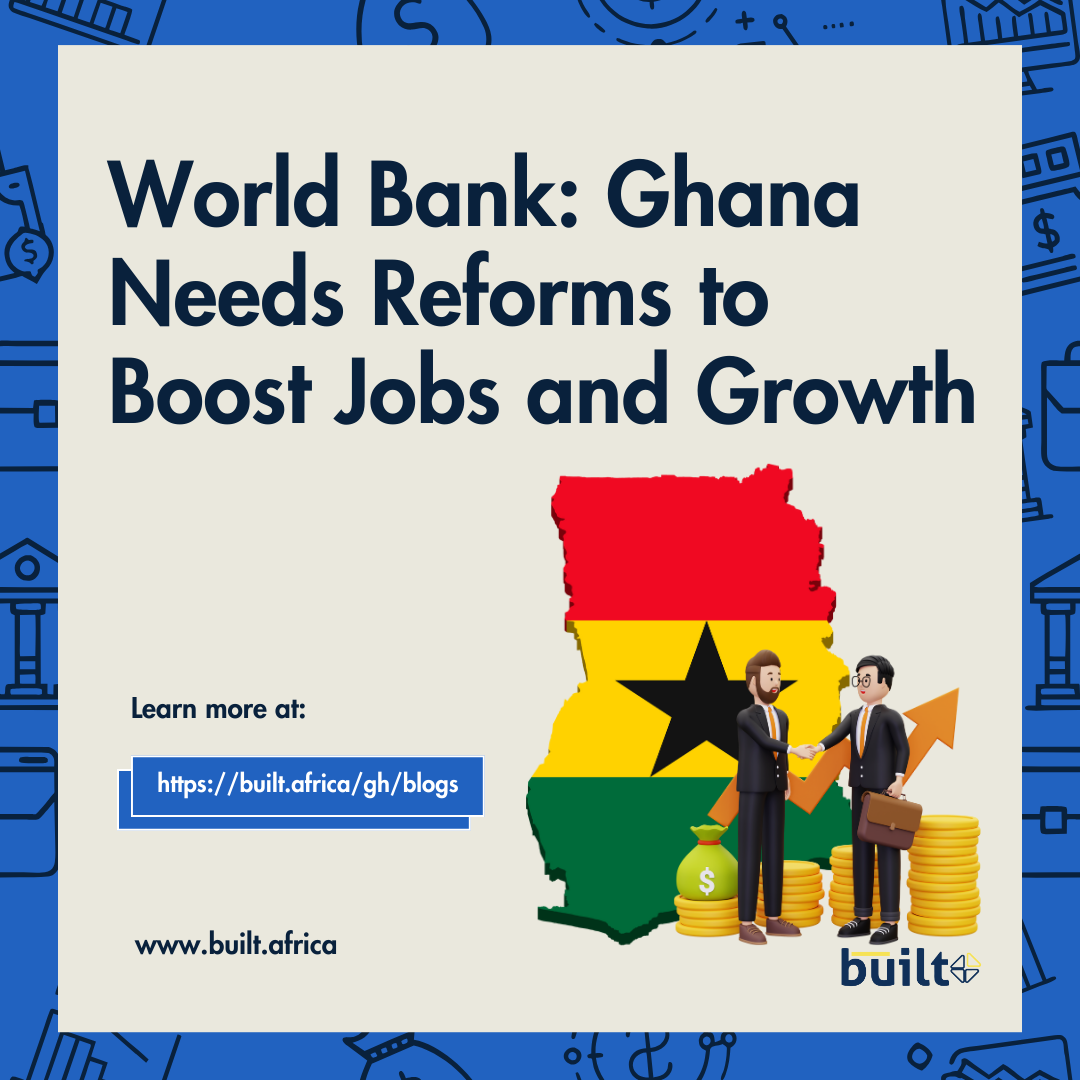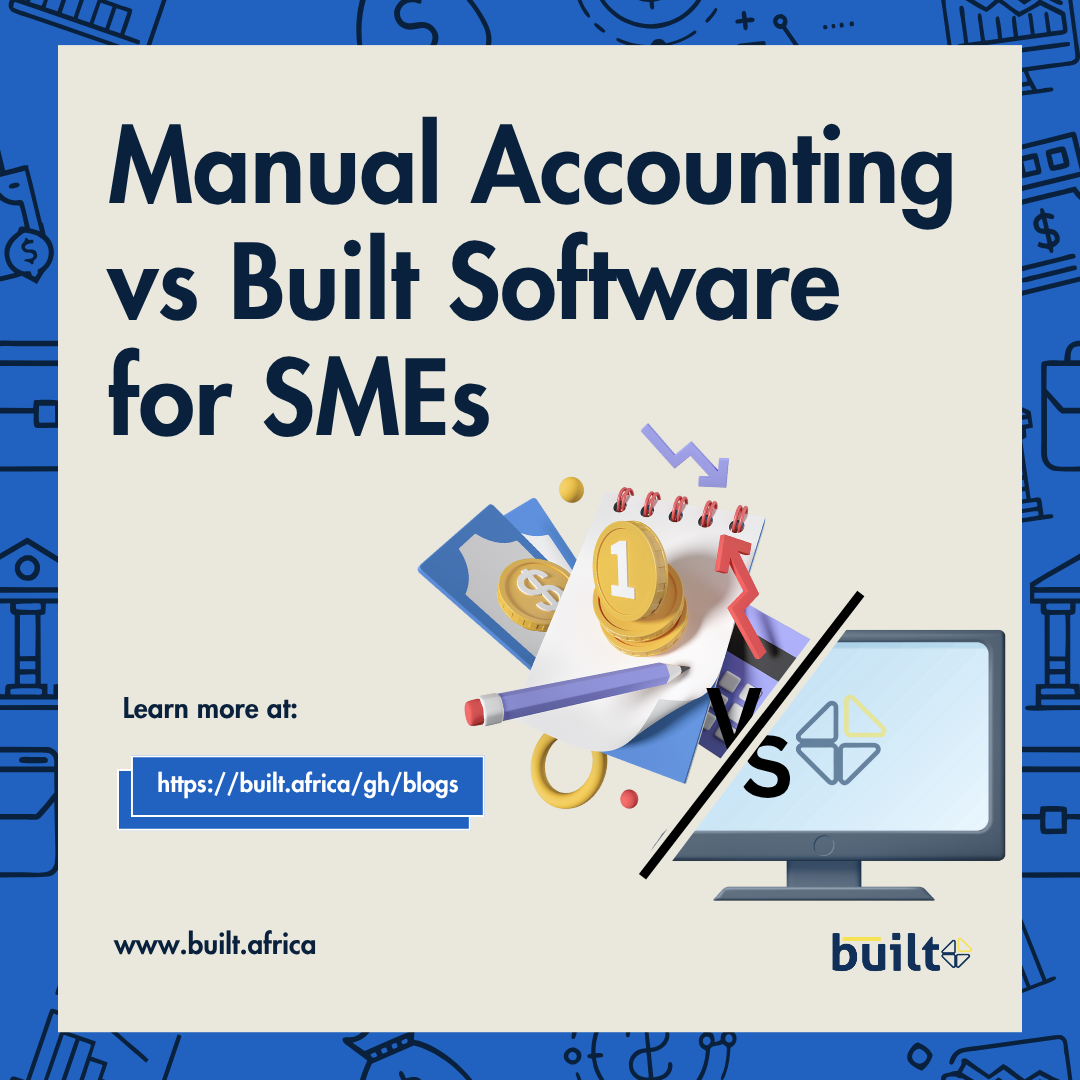
World Bank: Ghana Needs Reforms to Boost Jobs and Growth
29 Aug, 2025
Built Editorial
29 Aug, 2025

The World Bank’s 2025 Economic Update on Ghana reveals that the country’s economy faces serious challenges in private sector investment, SME growth, and job creation. Ghana scored poorly in the B-READY 2025 index, underlining the structural barriers holding back competitiveness and sustainable growth, even as the country sees a rise in education levels and entrepreneurial activity.
The B-READY framework measures how countries perform across key areas that affect businesses and investment. Ghana’s results reveal several weaknesses:
–Market Competition – Score: 32
–Business Entry – Score: 41
–Dispute Resolution – Score: 55
These low scores signal persistent challenges in competition, business registration processes, and contract enforcement, all of which affect how quickly businesses can start and thrive in Ghana.
One of the report’s key findings is the growing mismatch between rising education levels and the availability of high quality jobs.
-The probability of securing a high quality job is declining across all education levels.
-Many graduates struggle to find roles that match their skills, with weak demand in high-productivity sectors like manufacturing and construction.
-Poor education quality, reflected in Ghana’s low performance on standardized test scores, also contributes to the challenge.
This means that while Ghana is producing more skilled workers, the economy is not generating enough productive jobs to absorb them.
The report warns that youth unemployment remains a growing concern.
-Many young people are not seeking jobs after completing their studies, citing the lack of suitable opportunities.
-An estimated one million Ghanaian youth currently live abroad, masking the severity of the domestic job shortage.
This trend underscores the urgency of policies that create jobs locally to retain young talent.
Between 2012 and 2023, self-employment generated twice as many jobs as wage employment outside agriculture. While entrepreneurship remains important, the lack of growth in waged jobs signals structural weaknesses.
The slowest-growing sectors, manufacturing, construction, and domestic services, are also the ones that typically provide stable employment for medium-skilled workers.
Without stronger investment and reforms, these sectors will continue to lag, limiting Ghana’s ability to expand high quality job opportunities.
What This Means for SMEs and Entrepreneurs
For Ghana’s SMEs and startups, the findings reinforce the importance of resilience and innovation. Despite structural hurdles, SMEs remain the backbone of the economy, driving employment, productivity, and income growth.
Entrepreneurs can adapt by:
-Exploring digital tools and automation to cut costs and improve efficiency.
-Seeking opportunities in underserved markets where competition is low.
-Building partnerships to navigate regulatory and financing challenges.
At Built, we believe SMEs are central to shaping Ghana’s future economy. By leveraging technology, streamlining operations, and adopting smarter financial practices, businesses can stay ahead even in a challenging environment.
The World Bank’s 2025 Economic Update is a wake-up call for Ghana. While education levels are rising, the economy’s ability to create high-quality, sustainable jobs is lagging behind. Addressing these gaps requires a stronger private sector, better business environment, and policies that prioritize SME growth.
For entrepreneurs, this is both a challenge and an opportunity. With the right tools and strategies, SMEs can position themselves as the engine of job creation and inclusive growth in Ghana.

29 Aug, 2025

13 Aug, 2025

28 Jul, 2025

25 Jul, 2025

09 Jul, 2025

09 Jul, 2025

01 Jul, 2025

03 Jun, 2025

30 Apr, 2025